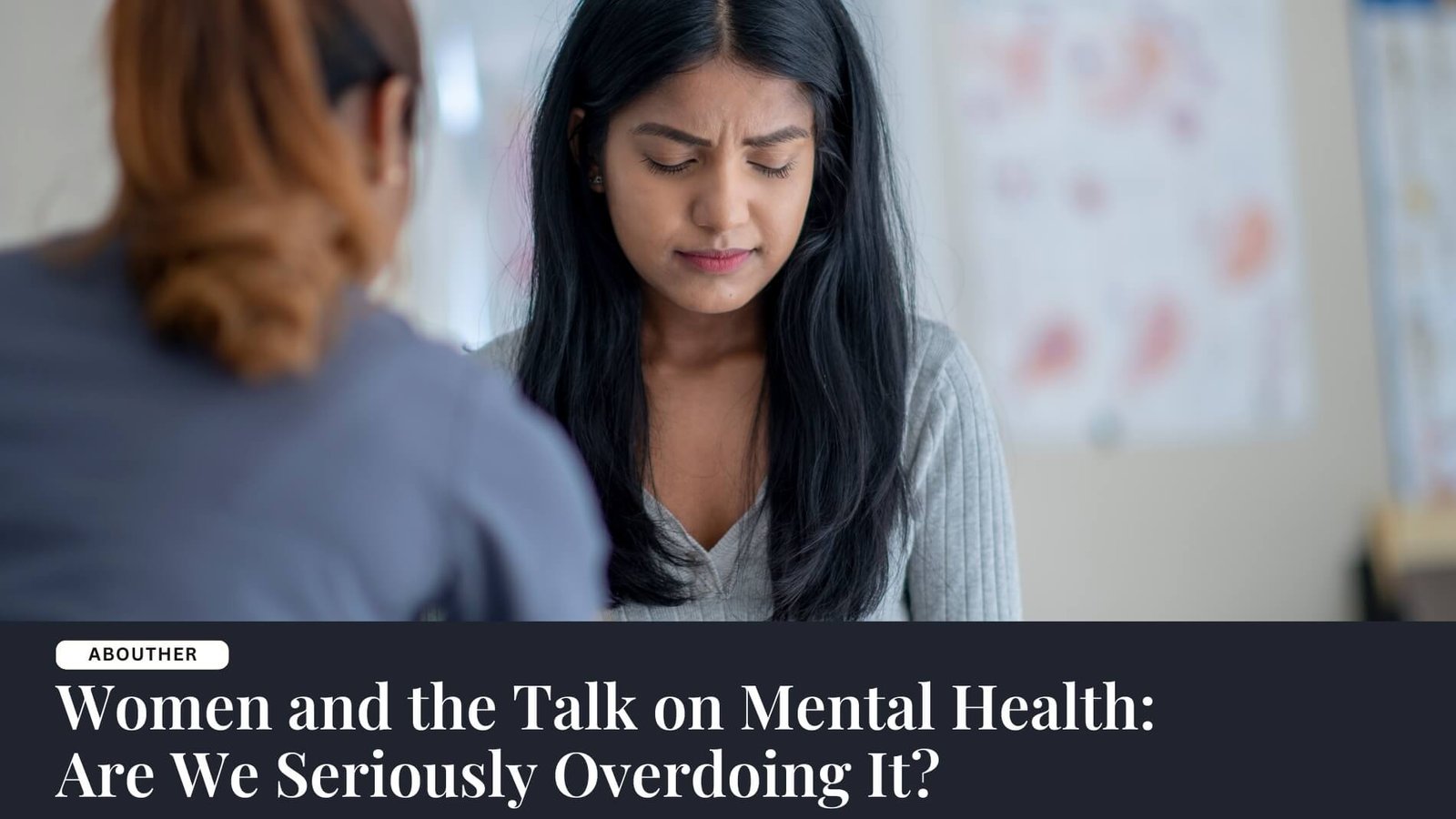Women and the Talk on Mental Health: Are We Seriously Overdoing It?
“Do care for your mental health,
Taking it to the utmost depth,
Then only can you earn real wealth,
Preventing issues with complete stealth!”
Mental health is more than a buzzword; it’s the cornerstone of our emotional, psychological, and social well-being, as crucial as our physical health. A person struggling with mental health challenges is often like a body with a weakened soul, lacking the energy to navigate life fully. Recently, the mental health of women, in particular, has captured attention. Still, instead of “overdoing” the conversation, it’s likely that we are just scratching the surface, overlooking deeper issues that remain hidden or stigmatised.
Many women perceive themselves as mentally fit—capable of delivering speeches and leading discussions on the importance of mental wellness. However, mental health is a complex and layered subject. Often, women who appear outwardly composed may carry emotional burdens within, unaware that they, too, may be in need of support. Conversations about mental health are vital, yet there is a risk of false assurance: the more we discuss, the more we might inadvertently believe we’re immune to personal struggles. This self-consciousness can morph into anxiety or even lead to distress over health—just by overthinking.
Historically, women’s mental health has been overlooked or misunderstood. Concepts like “hysteria” in the 19th century reduced women’s emotions to weaknesses, dismissing their needs and medicalising their natural feelings. Today, despite advances, there is still a tendency to minimise women’s pain and emotions, to the point that many avoid seeking help, fearing judgment or dismissal. Society, often unintentionally, places immense expectations on women as daughters, sisters, mothers, and wives. Women manage these responsibilities remarkably well, yet they are not immune to the toll that comes with trying to meet everyone’s expectations. The weight of these roles can lead women to take on more stress than they can bear, leaving little room for them to focus on their own mental health.
Also Read: From Stress to Success: Strategies for Emotional Wellness
Women are achievers, excelling in careers, family life, and countless other areas. However, high achievement often brings mental strain that women may feel compelled to hide, even from themselves. Women often lack an outlet—a confidant to whom they can express their worries and struggles. They are known for their strength, yet even the strongest among us need peace and happiness within.
In reality, the conversations on mental health are just beginning. Talking about mental health is one thing, but addressing it meaningfully requires a more proactive approach to both awareness and treatment. Mental wellness should not be viewed as a luxury; it is essential. Self-love and personal care need to be recognised as non-negotiables. Women, in particular, must see that mental health involves much more than just “coping”; it’s about creating spaces for self-expression, establishing boundaries, and understanding that their well-being is vital.
Women must realise that taking time for themselves, whether to relax or recharge, is not selfish. In fact, it’s essential. We must encourage women to safeguard their mental health actively and to prioritise their peace and wellness. Healthcare systems have a significant role in supporting women’s mental health. Many women feel unheard or dismissed in healthcare settings, where interventions come too late or offer too little support. Greater availability of mental health services, better training for providers, and a patient-centred approach are critical.
With advancements in telehealth and online therapy, mental health care has become more accessible and flexible. These new avenues are especially beneficial for women, who may find it challenging to take time out of their busy schedules for in-person visits. This shift towards more accessible mental health care positively affects society as a whole. When women are mentally healthy, they bring positivity, functionality, and resilience to their families, workplaces, and communities. A woman in good mental health not only uplifts herself but also creates a ripple effect, motivating those around her to seek happiness and fulfilment.
Also Read: The Vital Role of Communication in Building Strong Relationships
As society becomes more attuned to mental health needs, addressing disparities in care is essential. Women’s voices must be at the forefront, driving conversations and actions toward a culture of empathy and support. In countries like India, where mental health still bears considerable stigma, each woman must learn to be honest with herself about her struggles and focus on self-care and self-compassion. This shift from conversation to actionable care can transform not only the lives of individual women but also their communities.
If women across India are determined and mentally resilient, the entire country stands to benefit. In this way, we can strive to make India a model of strength, empathy, and empowerment—a true Vishwaguru on the world stage.
Share This On Social
![Sangeeta-Relan-AH-525×410[1]](https://aboutherbysangeeta.com/wp-content/uploads/2024/06/Sangeeta-Relan-AH-525x4101-1.jpeg)
I’m Sangeeta Relan—an educator, writer, podcaster, researcher, and the founder of AboutHer. With over 30 years of experience teaching at the university level, I’ve also journeyed through life as a corporate wife, a mother, and now, a storyteller.


















